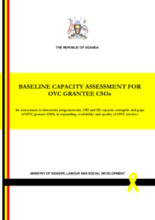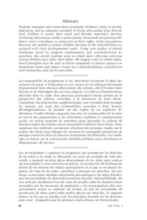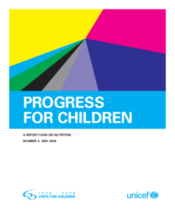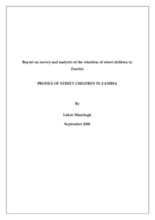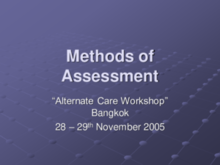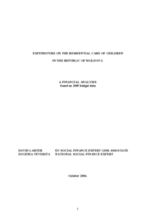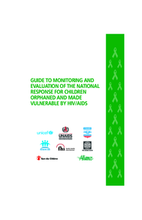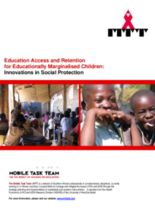Displaying 481 - 490 of 565
Findings and methodology of a capacity assessment of OVC Grantee CSOs in Uganda.
Explores the ways in which data collection activities affect children’s rights and suggests methods by which rights-based principles may be used to derive appropriate safeguards to prevent unintentional harm and abuse.
Evaluates global improvements in nutrition as progress towards achieving the Millenium Development Goals (MDGs). Suggests that the MDGs are attainable only with re-prioritization of efforts to reduce child undernutrition.
Profile of street children in Zambia. Emphasis on generating data for policy development. Collected data analyzed at a national level but datasets are available for further analysis in terms of geographical location, gender, or other population sub-sets.
An assessment to determine MGLSD and District Management and operational capacity needs in providing leadership, coordination, and monitoring and evaluating the national response to OVC and AB/Y in Uganda.
This presentation was given at the Alternative Care Workshop in Bangkok in November 2005.
This document provides an outline of the Workshop on Indicators and Information Systems, held on day 2 of the Alternative Care Workshop in Bangkok in November 2005.
Reports on the financial costs of residential care for children in the Republic of Moldova. Highlights significant financial inefficiencies and advocates for closure of residential institutions.
Guidance on establishing a national monitoring and evaluation process to track a country’s response to children orphaned and made vulnerable by HIV and AIDS. It includes methods and tools for measurement, and recommends a set of core indicators to record national status and changes.
This paper provides a comprehensive contextual overview of the educational challenges faced by orphans and vulnerable children in sub-Saharan Africa. It includes recommendations for future education policy in the context of HIV and AIDS, as well as provides country specific data on current policies and social protection programs.

